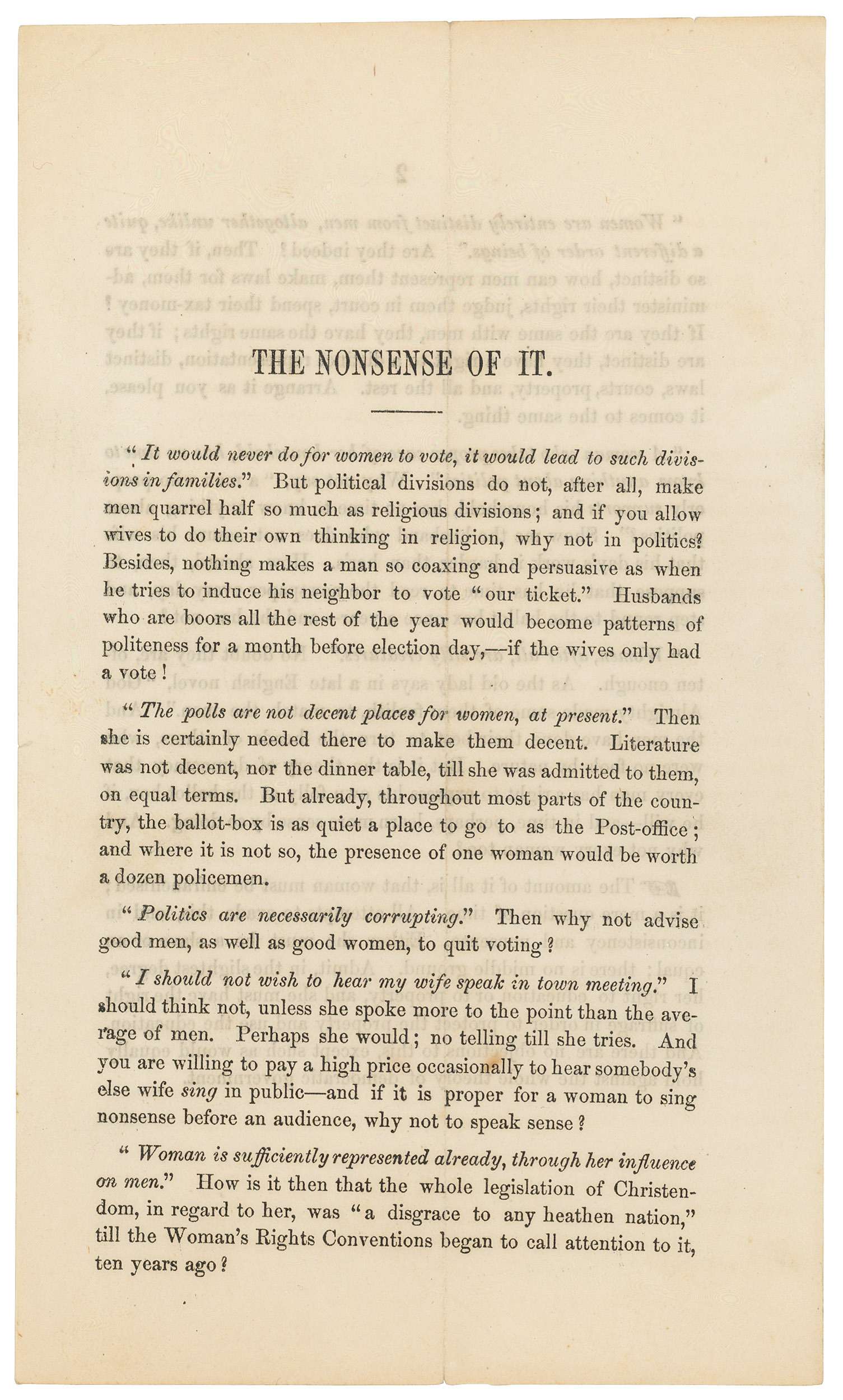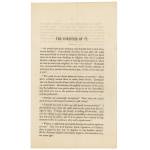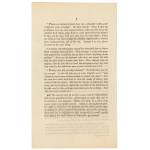The Nonsense of It
12/26/1865
Add to Favorites:
Add all page(s) of this document to activity:

Add only page 1 to activity:
Add only page 2 to activity:
This printed pamphlet arguing for women's suffrage, written by abolitionist Thomas Wentworth Higgins, circulated in 1865. It presented a rebuttal to common arguments against suffrage and perceptions that defined women’s roles and behavior during the 19th century. Among these arguments were such concepts as women are “sufficiently represented already,” or “entirely distinct from men,” or “silly creatures,” or that “it would lead to such divisions in families.”
Transcript
THE NONSENSE OF IT."It would never do for women to vote, it would lead to such divisions in families." But political divisions do not, after all, make men quarrel half so much as religious divisions; and if you allow wives to do their own thinking in religion, why not in politics? Besides, nothing makes a man so coaxing and persuasive as when he tries to induce his neighbor to vote "our ticket." Husbands who are boors all the rest of the year would become patterns of politeness for a month before election day,—if the wives only had a vote!
"The polls are not decent places for women, at present." Then she is certainly needed there to make them decent. Literature was not decent, nor the dinner table, till she was admitted to them, on equal terms. But already, throughout most parts of the country, the ballot-box is as quiet a place to go to as the Post-office; and where it is not so, the presence of one woman would be worth a dozen policemen.
"Politics are necessarily corrupting." Then why not advise good men, as well as good women, to quit voting?
"I should not wish to hear my wife speak in town meeting." I should think not, unless she spoke more to the point than the average of men. Perhaps she would; no telling till she tries. And you are willing to pay a high price occasionally to hear somebody's else wife sing in public—and if it is proper for a woman to sing nonsense before an audience, why not to speak sense?
"Woman is sufficiently represented already, through her influence on men." How is it then that the whole legislation of Christendom, in regard to her, was "a disgrace to any heathen nation," till the Woman's Rights Conventions began to call attention to it, ten years ago?
"Women are entirely distinct from men, altogether unlike, quite a different order of beings." Are they indeed? Then, if they are so distinct, how can men represent them, make laws for them, administer their rights, judge them in court, spend their tax-money? If they are the same with men, they have the same rights; if they are distinct, they have a right to a distinct representation, distinct laws, courts, property, and all the rest. Arrange it as you please, it comes to the same thing.
"A woman who takes proper care of her household, has no time to know anything about politics." Why not say, "a man who properly supports his household, has no time to know anything about politics?" Show me the husband who does not assure his wife that his day's work is harder than her's. How absurd, then, to suppose that he has time to read the newspaper every day, and step round to the ballot-box once a year—and she has not?
"Women, after all, are silly creatures." No doubt they are, often enough. As the old lady says in a late English novel, "God Almighty made some of them foolish, to match the men." And the men have done their best to turn the heads of others, who were no fools by nature. But it is the theory of democracy that every man has a right to express his own folly at the ballot-box, if he will—and in time, perhaps, learn more sense by so doing. And why not every woman too?
The amount of it all is, that woman must be enfranchised; it is a mere question of time. All attempts to evade this, end in inconsistency and nonsense. Either she must be a slave or an equal; there is no middle ground. Admit, in the slightest degree, her right to education or to property, and she must have the right of suffrage in order to protect the property and use the education. And there are no objections to this, except such as would equally hold against the whole theory of democratic government.
This primary source comes from the Records of the U.S. House of Representatives.
National Archives Identifier: 306685
Full Citation: 'The Nonsense of It,' A Printed Pamphlet Arguing for Women's Suffrage; 12/26/1865; Petitions and Memorials Referred to the Committee on the Judiciary, 6/3/1813 - 1998; Records of the U.S. House of Representatives, Record Group 233; National Archives Building, Washington, DC. [Online Version, https://www.docsteach.org/documents/document/nonsense-of-it, April 26, 2024]Rights: Public Domain, Free of Known Copyright Restrictions. Learn more on our privacy and legal page.





